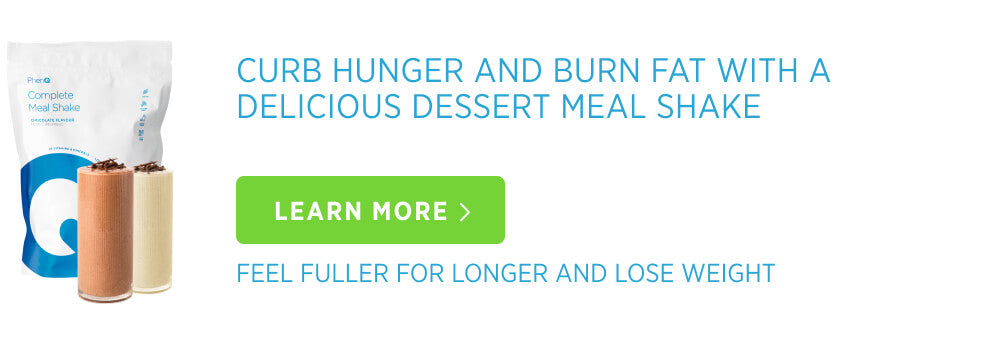Losing weight and maintaining your health are two separate goals. Many people forget that in the pursuit of their diet they sometimes also let go of their health.
Although it’s important that you keep yourself lean or at least within healthy weight ranges, not all diets are meant to work for all body types. Each person has their own health requirements and choosing the right diet is essential if you want to live a longer and much healthier life.
So if you’ve been wondering which diet is right for you, this blog will talk about the various diet options you can consider. It will also answer the question of how to choose a diet and the precautions you ought to take with each.
Hopefully, by the end of this post, you will know what diets you should consider as you try to lose weight.
- Which diet is right for me?
- Should I ask my doctor for diet advice?
- What if I still don’t know which diet is best for me?

Which Diet is Right for Me?
Honestly, no one can answer that question but you, or maybe your doctor. People have different body types with different nutritional requirements and there’s no telling which diet is great for them.
Although all diets have the same purpose, to make sure you lose more fat than you gain, questions like whether you’re hypertensive or diabetic or have a nutritional deficiency will make some options more desirable than others.
Ultimately, dieting must help you to get healthier and these lifestyle changes shouldn’t compromise on your long-term health. That’s the guiding principle for all diets.
There are options you can consider depending on whether your body can take on the restrictions from a diet and if you are comfortable with a certain diet plan. Not all of these will require that you eliminate certain types of food and some are more effective than others.
Furthermore, remember that you should pick out a diet plan that you can sustain for the rest of your life to stay within healthy or desired weight ranges. Research indicates that people who lose 1 – 2 pounds per week are much more likely to keep the weight off and it won’t pose a significant risk to their well-being.
As such, you should also consult your doctors on which diets suit your purposes and your health conditions.
Choosing the right diet for my goals
Weight-loss goals are judged by how soon you want to lose weight and how much weight you want to lose. Many people want to lose weight quickly, which is why they opt for intense diets.
Some of the diets we will list below are much more intense and rigorous than the rest, you can choose from these depending on your weight goals.
Balanced Diets
Health experts define a Body Mass Index rating of between 18.5-24.9 as a healthy rating for adults. It’s difficult to define what weight this is because of the differences in height and the differences in nutritional requirements amongst different age brackets.
Anything under 18.5 will qualify as under-nourished, while any rating above 24.9 is generally considered over-nourished.
Anyone with a healthy BMI and who doesn’t want to lose more weight should opt for a balanced diet. Balanced diets don’t place any restrictions on the foods you can eat, all it asks is that people get all the normal nutrients they should for a healthy life.
A balanced diet is often prescribed for people who’re suffering from high blood pressure or diabetes to curb the exacerbation of their disease.
You should consider a balanced diet if you’re trying to recover from a health condition or if you’re severely obese, because it will ensure that you reach a certain weight limit gradually.
Balanced diets are also easy to adopt and maintain because they fulfil the basic nutritional requirements for fats, carbs and proteins. You won’t feel weak or experience any adverse effects with balanced diets.
In fact, this is the diet that all people should adopt after going on low-carb or low-fat diets so they don’t suffer from nutritional deficiencies in the future.
These diets include plenty of fruits, vegetables, lean meats like fish, whole-grain breads, and plenty of exercise to prevent additional weight gain. You should consult an expert to see what balance of nutrients you need to maximize your weight loss.
Low Carb Diets
Low carb diets reduce the amount of insulin in the body to reduce the amount of fat being stored. Insulin is a hormone that converts carbohydrates like glucose into fat, which can be burned to produce energy for the body.
These diets focus on reducing the intake of carbohydrates, which reduces the production of insulin and therefore the fat produced in the body. The low-carb diet is accompanied by plenty of exercise to increase the rate at which fat is burned in the body.
Research indicates that low carb-diets are one of the most successful methods of weight loss, accelerating the process for the first 6-12 months.
One of the more popular examples of low-carb diets is the Keto diet, which requires people to reduce their carb intake to 20-50 gm/day to induce drastic weight loss.
Generally, low carb diets require people to reduce their carb intake to less than 130 gm/day, where the recommended amounts of carbohydrate intake for adults is 220 gm/day. There are many risks associated with going on low carb diets such as heart disease, diabetes and potential kidney failure.
High Protein Diets
High protein diets try to replace the energy-generating role of carbohydrates in the body with protein. Proteins are essential for the development of muscles and tissues in the body, as opposed to carbs which are deposited as fatty tissue.
The role of a high protein diet is to slowly replace carbohydrates with proteins to replace fat gain with muscle gain instead.
The high protein diet requires you to exercise along with changing your eating patterns. As you work out your body burns fat because you don’t have enough carbohydrates to burn and you gain weight in the form of non-fatty muscle mass instead.
You will have to increase your protein intake to 1.5g-2.0g per day. Studies point out that the high-protein diet is as successful as low carb diets and are recommended for people trying to increase muscle mass in the body.
Despite the success of high protein diets, there is still a huge risk associated with these. When implemented over long periods of time, high protein diets can lead to malnutrition, liver dysfunction and kidney problems. You shouldn’t maintain these diets for more than a period of 12 months.
Low-Fat Diets
Fats are an essential component of healthy bodily functions. When these are broken down into their most basic chemical parts, these are absorbed by your cells where they serve as ingredients in the various chemical reactions taking place in the body.
Certain fats are healthier than others like Omega-3 fats, which keep your eyes healthy and might even reduce blood pressure. Other types of fats can increase the production of cholesterol and lead to hypertension or other cardiac disease and, in many cases, cause obesity.
Low-fat diets are preferred over both low-carb and high-protein diets because these have very little risk of making your health worse. While fats are also an essential nutrient, these aren’t as important as carbs which produce energy or proteins because these are responsible for tissue growth and cell synthesis.
Low-fat diets involve replacing fatty foods with much healthier and wholesome substitutes like fruits, vegetables, and low-fat dairy.
Studies aimed at identifying the effects of low-fat diets found that these are effective for years, helping people lose as much as 3.3 kg in a two-month period. Additionally, these diets don’t cause malnutrition because reducing the intake of fat doesn’t in any way create a carb deficiency, which can make you lethargic and weak.
When replaced with other nutritional foods that are high in carbs or proteins, you are much more likely to lose weight without having to worry about any side-effects.
Meal Replacement Diets
Meal replacement diets require people to stop eating and instead take supplements that can fulfill their nutritional requirements. As you reduce the amount of food you’re eating and work out from the energy coming in from the supplements, you can burn fat to lose weight.
There is no extra fat development in the body since you only take as many supplements as needed for daily activities and, therefore, there is a negative net effect on your fat deposits.
These diets have been shown as effective for short term weight loss, without presenting the risk of long-term side-effects. However, these are difficult to maintain because of the high cost of buying the supplements to keep up with your nutritional requirements.
Extreme Dieting
Extreme diets have become an increasingly popular option to achieve rapid weight loss. These involve drastically changing nutrition intake to quickly lose weight by either reducing carbs with fats or replacing fats with carbs, or just eating less altogether.
Although these diets might be effective, these also have the potential to induce severe nutritional deficiencies in the long run.
The extreme changes in nutritional intake wreaks havoc on people’s bodies and should only be considered under medical supervision. As such, these lie on the spectrum siding towards the unhealthy forms of dieting.
How to choose a diet that is sustainable
Considering the many options available to you, you need to see which ones are best for you. This decision relies on multiple factors. Here’s just a few.
Consider Your Budget
When you’re wondering “which diet is better for me”, you’ll need to see if you can afford the lifestyle change. Meal replacement diets for example require you to spend a lot of money on supplements.
If you can’t afford these supplements, then you really shouldn’t go for that diet. If you don’t keep up with your supplement intake, meal replacement diets can go awry fast.
Consider Your Dieting History
If you’ve already tried a diet before and it didn’t work out, then there is no point in trying out the same diet again. If you think you can’t be disciplined with your diet plans, then you might want to start slow with a balanced diet and then move to other more intense diets.
Consider any additional dieting factors
If you have a preexisting condition or any allergies, then you should take these into account before you start a diet plan. There might be certain conditions which really aren’t compatible with diets like high protein or a low carb diet.
So, if you’re allergic to certain types of dairy or fruits, then you might need to change your diet plans accordingly.
Additionally, people who have crossed a certain age limit should be careful with their diets because they are much more sensitive to nutritional deficiencies than other age groups.
Should I ask my doctor for diet advice?
Whenever you’re wondering what diet is best for you or about your health in general, you can’t go wrong consulting with your doctor. Your doctor can conduct thorough checkups to see whether you’re deficient in any nutrients, can tell how a certain diet will affect your pre-existing conditions, and much more.
If you’re already a bit older or have a pre-existing condition, they can help devise nutrition plans and exercise regimens which will eliminate the risk of any health complications resulting from your diet.
What if I still don’t know which diet is best for me?
You won’t know which diet is best for you until you try out each one to see which suits well. You can change up your diet to see which one fits you best.
Although dieting is meant to be uncomfortable, it’s not supposed to put too much strain on you such that it affects other aspects of your life. Maintaining a healthy weight is essential but focus on the healthy bit rather than on the dieting bit and see if you can mix and match your diets to get to your ideal weight.
Try getting counseling, speaking with your doctors, and engaging with your trainer (if you have one) to see what you can do to lose weight much more effectively.
Related Article: 1200 Calorie Diet Plan
At the end of the day your health is most important, you should maintain a healthy diet and never give up on it because your long-term well-being might be at stake.
Conclusion
In conclusion, you should carefully assess which diet you should implement in order to live a better and longer life. This article gave you an overview of some of the main diets out there, and hopefully it’s helped you in deciding on which diet is right for you.
In case you’re not sure which one to go for, we recommend you consult with your doctor to see what you need to do to become more fit and healthy. Even if you already know which you diet to go for, seeing your doctor is never a bad idea.




